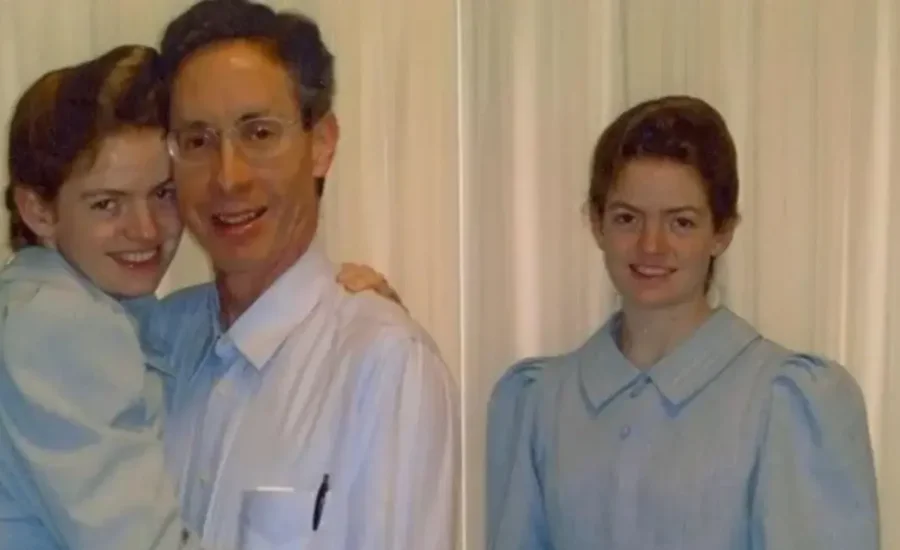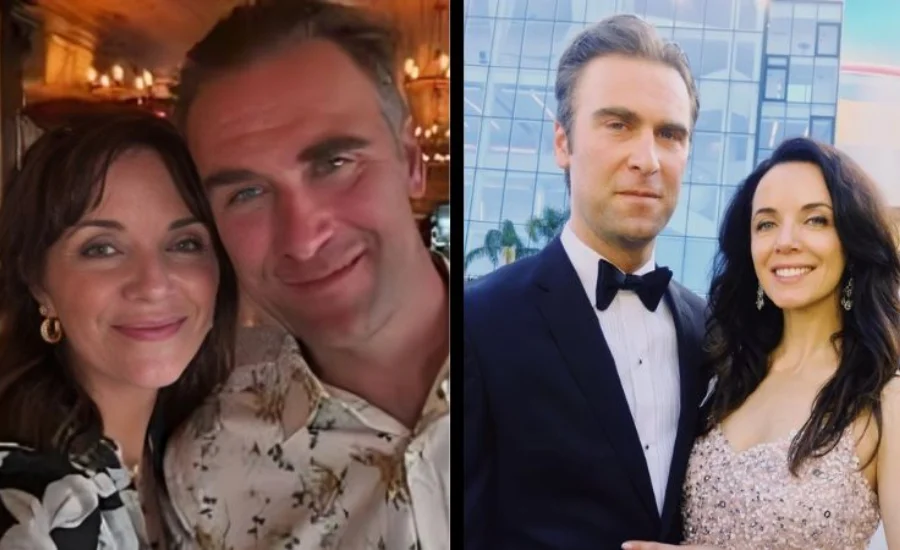Merrianne Jessop’s life is inextricably linked to the controversial history of the Fundamentalist Church of Jesus Christ of Latter-Day Saints (FLDS). As one of Warren Jeffs’s wives, her personal journey is a reflection of the profound struggles faced by individuals within strict religious systems.
Raised within the FLDS community, Merrianne’s worldview was shaped by the teachings and customs of the church from an early age. At the tender age of 12, she became one of Jeffs’s wives, marking a pivotal moment in her life as she was drawn into the complexities of a rigid, patriarchal society.
Merrianne’s story sheds light on the difficult choices and personal sacrifices she faced, offering a window into the broader issues of individual autonomy, faith, and the psychological impact of living under authoritarian religious control. Her experiences underscore the tensions between personal freedom and devotion, fueling ongoing discussions around human rights, personal agency, and the effects of high-control communities.
Wiki
| Attribute | Details |
|---|---|
| Name | Merrianne Jessop |
| Spouse | Warren Jeffs |
| Age | 28 |
| Birth Date | July 3, 1994 |
| Father | Merril Jessop |
| Mother | Barbara Jessop |
| Kids | No children |
| Net Worth | Not known |
| Body Measurements | Not known |
| Social Media | Not known |
| Known As | Wife of Warren Jeffs |
| Nationality | Not known |
| Ethnicity | Not known |
| Religion | Christianity |
| Marital Status | Married |
| Sexuality | Straight |
Who is Merrianne Jessop?
Merrianne Jessop’s life is a powerful testament to resilience, survival, and personal transformation. Born into the Fundamentalist Church of Jesus Christ of Latter-Day Saints (FLDS), her upbringing was shaped by the strict doctrines of one of the most controversial religious groups. As the daughter of prominent members of the FLDS, Merrianne’s story reflects not only the hardships of growing up in a polygamous environment but also the complexity of escaping from such a tightly controlled, authoritarian society. Her experiences shed light on the severe psychological, emotional, and cultural consequences of living in a high-control religious group, raising important discussions about personal freedom, individual rights, and the journey of healing after escaping such oppressive environments.
Early Influences and Family Background

Merrianne Jessop was born on July 3, 1994, into a family deeply embedded in the FLDS community. Her father, Merril Jessop, was a key leader within the church, and his influence extended far beyond his role as a father. Merril had multiple wives, including Barbara Jessop, Merrianne’s mother, who was often described as his favorite wife. The Jessop family was an embodiment of the polygamous lifestyle that the FLDS enforced. Merril had six wives in total and approximately 54 children, with each wife and their children living under strict hierarchical rules that governed their daily lives. This family structure and the emphasis on obedience, submission, and conformity were part of the larger framework of FLDS teachings.
Merrianne’s early life was marked by the rigid structure of the FLDS, where the role of women and girls was defined almost exclusively by their relationships to men, either as daughters or future wives. From a young age, Merrianne was conditioned to understand that her primary purpose in life would be to marry and bear children within a polygamous family, perpetuating the FLDS teachings. Growing up in Colorado City, Arizona, an area that served as a stronghold for the FLDS, Merrianne was immersed in the group’s beliefs. The town was a closed-off community where the church’s teachings were not only present in religious services but governed all aspects of daily life.
Merrianne’s formal education, like that of many FLDS children, was based heavily on religious doctrine. The emphasis was placed on learning the teachings of the FLDS church rather than academic education. The expectation was that women would serve their husbands and raise children in a system that prioritized submission and obedience over personal development or autonomy. Merrianne, like other girls in her community, was taught from an early age that her worth was tied to her ability to fulfill these duties, a message that would deeply shape her sense of self-worth and future identity.
The Marriage to Warren Jeffs

One of the most pivotal moments in Merrianne’s life came when, at just 12 years old, she was married to Warren Jeffs, the leader of the FLDS. Warren Jeffs’s rise to power within the FLDS was marked by his uncompromising and authoritarian interpretation of the church’s teachings. Following the death of his father, Rulon Jeffs, Warren assumed leadership of the group, taking on the role of a prophet and dictating the lives of his followers with an iron grip. His reign was characterized by a strict emphasis on polygamy, child marriage, and control over the lives of the community’s members, especially women.
Merrianne’s marriage to Jeffs was part of a disturbing pattern within the FLDS, where young girls were married off to much older men, often with little regard for their emotional or physical well-being. The practice of marrying young girls to older men was justified by the FLDS leadership as part of God’s plan, but in reality, it was a way for Jeffs and other leaders to consolidate power and ensure the continuation of their control over the community. Merrianne, still a child herself, was thrust into a marriage that carried immense emotional and psychological weight.
The marriage was not one of love or mutual understanding but a religious duty, with Merrianne expected to accept her role as Jeffs’s wife without question. The psychological toll of being married at such a young age, combined with the oppressive environment enforced by Jeffs, was undoubtedly significant. Jeffs’s leadership was notorious for its cruelty and manipulation, often subjecting his wives to strict rules and severe punishment. This atmosphere of fear, control, and coercion created an environment where personal autonomy was stripped away, and the lives of women and girls were dictated by Jeffs’s whims.
Despite her young age, Merrianne’s position within the marriage came with expectations: she was to bear children, support her husband, and remain obedient to his authority. The lack of autonomy in her marriage was mirrored by the lack of personal freedom within the wider FLDS community. Women were expected to be submissive, and those who resisted or questioned the leadership faced severe consequences.
The Collapse of Jeffs’s Reign
The once-unquestioned authority of Warren Jeffs began to crumble as his increasingly abusive behavior came to light. In 2006, he was placed on the FBI’s Ten Most Wanted Fugitives list, facing charges of sexual abuse, child marriage, and crimes associated with his leadership of the FLDS. These charges reflected the darker side of the FLDS’s practices, particularly the systematic abuse of young girls through forced marriages. Jeffs’s arrest in 2007 marked a turning point for the FLDS, with law enforcement and media attention focusing on the group’s illegal activities and harmful practices.
In the wake of Jeffs’s arrest, Merrianne was placed in a foster home as part of efforts to protect minors who had been affected by the FLDS’s practices. While the foster system was meant to provide a safe environment for children who had grown up in the FLDS, the experience was not without its own set of challenges. Merrianne reportedly escaped from the foster care system in 2009 and returned to Texas, where she largely faded from the public eye. The complexities of reintegrating into mainstream society after leaving such a high-control environment were immense, and Merrianne’s decision to live privately reflects the ongoing struggle many former FLDS members face as they try to build new lives outside the group.
The escape from the FLDS was not just a physical departure but also an emotional and psychological one. For those raised within the community, breaking free means unlearning years of conditioning and facing the trauma of a life spent under the control of religious authorities. Former members often experience a sense of alienation as they attempt to integrate into a society that they have been taught to view with suspicion and fear. The emotional and psychological scars of growing up in the FLDS can take years to heal, and many survivors find it difficult to adjust to a world that was once foreign to them.
Life After the FLDS: Struggles and Challenges

Merrianne’s life after leaving the FLDS has remained largely private, and the lack of public information surrounding her current circumstances is a reflection of the difficulties that many former members face when trying to rebuild their lives. Adjusting to life outside of the FLDS is not only a logistical challenge but also an emotional one. Individuals like Merrianne, who have been isolated from mainstream society for much of their lives, often find it difficult to connect with others or find their place in a world that operates according to different values.
In many ways, Merrianne’s journey after leaving the FLDS is emblematic of the struggles faced by many who escape from high-control religious groups. Emotional trauma, confusion, and a lack of support systems are common among those who leave such groups. The loss of community, social networks, and a familiar way of life can be overwhelming. In addition to these challenges, former members of groups like the FLDS may also struggle with issues of trust, as they have been taught to view the outside world with suspicion.
The psychological impact of growing up in the FLDS, where personal freedom is restricted and one’s identity is largely defined by religious roles, can lead to feelings of isolation and alienation once individuals leave the community. The emotional scars left by years of living under the control of an authoritarian figure like Warren Jeffs can take a long time to heal, and the journey toward healing is often long and difficult.
A Life Defined by Faith and Tradition
The FLDS is known for its distinct practices and interpretations of religious texts, including the promotion of large, polygamous families. As a member of this community, Merrianne grew up in a world where religious leaders held significant authority, and familial decisions were often guided by spiritual directives. Her life reflected the broader cultural and social norms of the FLDS, where community cohesion and shared beliefs were paramount.
Merrianne’s experiences within this environment highlight the complexities of life in a close-knit religious group. While the FLDS provided a sense of identity and purpose to its members, it also imposed significant restrictions on personal autonomy. For individuals raised in such communities, questioning or stepping outside these norms could be challenging, often requiring tremendous courage and resilience.
Navigating a Path Beyond the FLDS
As Merrianne grew older, her journey began to diverge from the path laid out by her community. The challenges faced by individuals leaving the FLDS are considerable, as they often involve navigating a world vastly different from the one in which they were raised. Adjusting to life outside a controlled environment requires not only practical skills but also emotional strength and perseverance.
Reports suggest that Merrianne eventually chose to distance herself from the FLDS. For many former members, this transition involves rebuilding a sense of identity and autonomy. The process can be both liberating and daunting, as it often requires unlearning deeply ingrained beliefs while discovering new perspectives and opportunities.
Advocacy and the Need for Awareness
Merrianne’s story is not just a personal account but a broader reflection of the struggles faced by individuals in the FLDS and similar high-control religious groups. Her experiences have prompted important discussions about the rights of individuals raised in such environments, particularly women and children who are subjected to forced marriages and oppressive systems of control.
Advocacy efforts aimed at raising awareness of the abuses within polygamous communities, particularly child marriage, are crucial in addressing these issues. The challenges faced by individuals like Merrianne, who have been raised in such isolated environments, call attention to the need for legal reforms and protections for vulnerable individuals. As more stories like Merrianne’s come to light, there is growing public recognition of the need to protect those affected by these harmful practices.
The conversation surrounding these issues is vital not only for raising awareness but also for creating a supportive environment for survivors. Legal protections, counseling services, and community support networks are essential for helping individuals navigate their new lives after escaping from high-control religious groups. Merrianne’s story serves as a reminder of the importance of providing resources for those who need help in rebuilding their lives and reclaiming their personal autonomy.
Continuing the Conversation

Merrianne’s experiences resonate with many who have found themselves in similarly oppressive environments. The ongoing dialogue about the rights of individuals within religious contexts is crucial for fostering understanding and driving social change. By continuing to raise awareness about the struggles faced by individuals like Merrianne, advocates can work toward creating a society where personal autonomy is respected, and the rights of vulnerable individuals are protected.
The challenges that Merrianne faced after leaving the FLDS are far from unique, but her story offers hope. It shows that healing and transformation are possible, even in the face of such immense challenges. As survivors like Merrianne continue to speak out, their voices will help to bring about much-needed change for those still trapped in similar situations.
Also Read: Rebecca Sneed
Final Words
Merrianne Jessop’s journey is a powerful story of resilience and survival within the oppressive environment of the FLDS. Raised in a polygamous and authoritarian community, Merrianne was married to Warren Jeffs at the age of 12, marking the beginning of a difficult and tumultuous life. Her story highlights the profound psychological and emotional toll of living in such a controlled, high-demand religious system. After escaping the FLDS, Merrianne faced the challenges of reintegrating into mainstream society, dealing with the trauma and isolation from years of conditioning. Her experiences serve as a poignant reminder of the need for greater awareness and advocacy for those affected by forced marriages and oppressive religious practices. Merrianne Jessop’s courage in overcoming these struggles continues to inspire others who have faced similar hardships, underscoring the importance of personal freedom and autonomy. Her story is a testament to the strength of the human spirit and the possibility of healing after escaping high-control environments.
Related Posts: Betsy berardi



